Ever wake up in the morning and catch a whiff of gas in your kitchen? Your heart probably skipped a beat, right? That’s your brain telling you something important – gas systems aren’t something to take lightly. Here in Colorado Springs, where we lean heavily on natural gas to keep our homes warm through those brutal winter months, really understanding gas piping pressure testing and safety inspections isn’t just smart; it’s absolutely essential for keeping everyone safe.
I’ve been working with HVAC and gas systems around Colorado Springs for years, and I can’t tell you how many times I’ve seen homeowners and business owners get caught off guard by gas safety requirements. Whether you’re putting in a new system, giving your home a big makeover, or just trying to stick to local codes, there’s a lot to know. So, let me walk you through everything you need to understand about gas piping pressure testing and safety inspections right here in our neck of the woods.
Why Gas Piping Pressure Testing Matters More Than You Think
Let’s start with the basics. Gas piping pressure testing is like giving your gas system a thorough check-up. Just like you wouldn’t skip your annual doctor’s visit, your gas lines need regular testing to make sure they’re not leaking, corroded, or damaged in ways that could put you and your family at risk.
Think about it this way – your gas piping system is under constant pressure, carrying a highly flammable substance throughout your property. Even a tiny leak can lead to serious problems. I’ve seen situations where a small leak went unnoticed for months, slowly building up gas concentrations until one spark from an electrical switch could have caused a devastating explosion.
The pressure testing process involves filling your gas lines with air or nitrogen (definitely not actual gas – that would be super dangerous!) and then watching to see if that pressure holds steady over time. If the pressure drops, you’ve got a leak somewhere that needs to be found and fixed right away.
Colorado Springs Specific Requirements You Need to Know
Colorado Springs follows the International Fuel Gas Code (IFGC), plus some local tweaks that make our requirements specific to us. The city’s building department insists on pressure testing for all new gas installations, big changes to existing systems, and for some renovation projects.
Here’s what’s a bit different about our local requirements compared to other places: Colorado Springs requires testing at 1.5 times the normal working pressure for at least 15 minutes. But many contractors (myself included) actually recommend testing for at least 30 minutes to catch those really slow leaks that might not show up immediately.
The altitude here also plays a role that many people don’t consider. At over 6,000 feet above sea level, gas pressures and how gas burns change slightly. This means our local inspectors are trained to look for specific issues that might not be as relevant in lower-altitude areas.
You’ll also need to understand that Colorado Springs requires permits for most gas work. Even something as simple as moving a gas dryer connection often requires a permit and then an inspection. Seriously, don’t try to skip this step – the penalties can be really steep, and more importantly, unpermitted work can even void your insurance coverage if something goes wrong.
When Pressure Testing is Required
Knowing when you need pressure testing isn’t always obvious. New installations are a given – if you’re putting in a new gas line to a fireplace, stove, or water heater, you’ll definitely need testing. But there are other times when testing becomes a must that might surprise you.
Big renovations often mean you’ll need testing, even if you’re not directly working on the gas system itself. If you’re doing significant electrical work or structural changes that could potentially affect gas lines, the city may require testing to make sure nothing got messed up during construction.
Anytime you’re adding new appliances that will use more gas from your system, testing may be required. I’ve seen homeowners think they could just tap into an existing line for a new outdoor grill or patio heater, only to find out they need a complete system evaluation and testing.
Emergency situations also mean you’ll need testing. If there’s been a gas leak, earthquake damage, or another incident that could have damaged your gas system, you’ll need professional testing before the system can be used again.
The Testing Process: What Actually Happens
When a qualified pro comes to test your gas piping, here’s what you can expect. First, they’ll shut off the gas supply and disconnect all appliances from the system. This is super important because you don’t want actual gas in the lines during testing – it’s both dangerous and makes it harder to find leaks properly.
Next, they’ll connect a pressure gauge and pump air or nitrogen into the system to the required test pressure. For most homes in Colorado Springs, this means pressurizing to about 15 PSI (pounds per square inch) for systems that normally operate at 10 PSI.
The waiting period is where patience comes in handy. The technician will monitor the pressure gauge for the required time, watching for any drop that would show a leak. During this time, they might also use soap solutions or electronic leak detectors to check specific joints and connections.
If the system holds pressure, congratulations – you pass! The technician will write down the test results and give you the necessary paperwork for your permit inspection. If there’s a pressure drop, they’ll need to locate and repair the leak before testing again.
Safety Inspection Requirements Beyond Pressure Testing
Pressure testing is just one part of a complete gas safety inspection. Colorado Springs inspectors also look at things like making sure gas lines are the right size, that pipes are properly supported and protected, that shutoff valves are installed correctly, and that gas appliances are vented properly.
One area that trips up a lot of people is the requirement for earthquake shutoff valves in some setups. While Colorado Springs isn’t in a major earthquake zone, the building code still requires these devices in some commercial applications and larger residential systems.
Inspectors also pay close attention to clearances around gas appliances and piping. You can’t just run a gas line anywhere you want – there are specific rules for how close gas piping can be to electrical panels, water heaters, and other equipment.
The inspection also covers having the right labels and paperwork. Every gas shutoff valve needs to be clearly marked, and you need to have proper documentation showing how much gas your system components can handle and what pressure they’re designed for.
Common Issues That Cause Test Failures
After years of dealing with these inspections, I’ve seen the same problems come up over and over again. Loose fittings are probably the most common cause of test failures. Even a connection that seems tight might not be quite tight enough to hold test pressure.
Corroded piping is another common problem, especially in older homes where the original steel gas lines are starting to show their age. Colorado’s climate can be hard on metal piping, with our extreme temperature swings and occasional moisture issues.
Shoddy work during installation causes a surprising number of failures. I’ve seen cases where someone tried to save money by doing their own gas work, only to have multiple leaks show up during testing. Gas work isn’t a good place to cut corners – the safety risks are just too high.
Sometimes the issue isn’t actually a leak but rather pipes expanding and shrinking with temperature changes, affecting the test results. This is why experienced technicians know to let the system stabilize at room temperature before starting the test.
DIY vs Professional Testing: Why You Shouldn’t Go It Alone
I get asked all the time whether homeowners can do their own gas piping pressure testing. The short answer is no, and here’s why. First, Colorado Springs requires testing to be performed by pros who are licensed for permit purposes. Even if you could do the test yourself, the city won’t accept your results.
More importantly, gas work is genuinely dangerous. I’ve seen too many situations where well-meaning DIYers created bigger problems than they solved. Gas leaks can kill people, and the special tools and know-how required for proper testing isn’t something you pick up from a YouTube video.
The liability issues alone should make you think twice. If you do your own gas work and something goes wrong, your insurance company is likely to refuse to pay for anything. Professional contractors carry specialized insurance for exactly this type of work.
At Accurate Air Control, we’ve gotten the right testing gear and training to handle these inspections safely and efficiently. Our technicians understand Colorado Springs’ specific requirements and can help you through the permit process easily.
Cost Considerations and Budgeting
Let’s talk money, because I know that’s on everyone’s mind. Pressure testing costs in Colorado Springs typically range from $150 to $400, depending on how complicated your system is and the number of appliances involved. This might seem like a lot, but consider it insurance against much bigger problems down the road.
The permit fees add another $50 to $150 to your total cost, depending on what you’re doing. Some people try to skip the permit to save money, but this is penny-wise and pound-foolish. The fines for unpermitted gas work can be thousands of dollars, and you’ll still have to get the permit and inspection eventually.
If your system fails the pressure test, you’re looking at additional costs for repairs and retesting. This is why it’s so important to use good pros from the beginning – doing it right the first time is almost always cheaper than fixing problems later.
Factor in the cost of any required upgrades or modifications. Sometimes pressure testing reveals that your gas system is too small for all the gas appliances you’re using, or that old piping needs to be replaced for safety reasons.
Working with Colorado Springs Building Department
The building department in Colorado Springs has certain steps for gas inspections that you need to understand. You can’t just call for an inspection whenever you want – there’s a process to follow and timing requirements that matter.
First, you need to get your permit before starting any work. The permit application requires all the details about your planned installation, including what appliances you’re putting in and how the pipes will run. Don’t try to wing this part – incomplete applications just slow down the process.
Schedule your inspection at the right time. The pressure testing needs to be complete and written down before the inspector arrives, but don’t wait too long after testing to call for the inspection. Some test results are only good for so long.
Be prepared for the inspection. Have all your paperwork ready, make sure the work area is accessible and well-lit, and be available to answer questions about the installation. Inspectors appreciate when contractors and homeowners are organized and prepared.
Maintenance and Ongoing Safety Considerations
Passing your initial pressure test and inspection is just the beginning. Gas systems need ongoing attention to stay safe and up to code. I recommend having your gas system inspected annually, especially if you have older piping or live in an area with shifting soil conditions.
Watch for warning signs between inspections. If you smell gas, hear hissing sounds near gas appliances, or notice dead vegetation near underground gas lines, call for service immediately. Don’t wait for your next scheduled inspection if you suspect a problem.
Keep records of all your gas system work. This includes pressure test results, inspection reports, and any maintenance or repairs that have been performed. Good documentation can be super helpful if problems arise later or when you’re selling your property.
Consider upgrading older systems before things go wrong. If your home has original steel gas piping from the 1960s or earlier, it might be worth replacing with modern materials before problems develop. This is especially true if you’re planning other renovations that would require opening walls anyway.
Emergency Procedures and Response
Even with proper testing and maintenance, gas emergencies can happen. Every property owner in Colorado Springs should know how to respond to a gas leak or other emergency situation.
If you smell gas, don’t use electrical switches, phones, or anything else that could create a spark. Get everyone out of the building immediately and call 911 from a safe location away from the structure. Colorado Springs Fire Department has special gear and training for gas emergencies.
Know where your main gas shutoff valve is located and how to operate it. In an emergency, you might need to shut off gas to your entire property quickly. Make sure all family members or employees know this information too.
Have contact information handy for good gas professionals. When you’re dealing with a gas emergency, you don’t want to be searching online for contractors. Companies like Accurate Air Control offer emergency HVAC repair services and can respond quickly to gas-related emergencies.
Seasonal Considerations in Colorado Springs
Our climate here in Colorado Springs creates some special challenges for gas systems. The extreme temperature swings between summer and winter can cause expansion and contraction in gas piping that may lead to loose connections over time.
Winter is when gas systems work hardest, and it’s also when problems are most likely to show up. I recommend having your annual gas system inspection done in the fall, before heating season starts. This gives you time to address any issues before you really need your heating system.
Snow and ice can affect outdoor gas equipment and piping. Make sure to keep gas meter areas clear of snow, and check that outdoor appliance vents aren’t blocked by ice buildup. These might seem like small details, but they can cause safety issues and keep things from working right.
Spring is a good time for maintenance tasks like checking for winter damage and testing safety devices. After a long heating season, it’s worth having a professional look at your system to make sure everything is still operating safely.
Future Trends and Technology Updates
The gas industry is changing, and new technologies are making systems safer and work better. Smart gas detectors can now send alerts to your phone if they detect gas leaks, giving you early warning even when you’re not home.
New piping materials and installation techniques are also making systems more dependable. Flexible stainless steel connectors, for example, are much more resistant to earthquake damage and stress from temperature changes than traditional rigid piping.
Colorado Springs is also seeing increased interest in hybrid systems that combine natural gas with other energy sources. These systems can be trickier to test and inspect, so make sure any contractor you work with has experience with the particular setup you’re installing.
Building codes continue to change as well. What was acceptable five years ago might not be up to today’s standards, especially if you’re doing major renovations. Stay informed about code changes that might affect your property.
Choosing the Right Professional for Your Needs
When you need gas piping pressure testing or safety inspections in Colorado Springs, choosing the right contractor is super important. Look for companies that are properly licensed, insured, and have specific experience with gas systems in our area.
Ask about their testing procedures and equipment. A good pro should be able to explain their process clearly and show you proof their gear is checked and kept up.
Check references and reviews, but don’t just look at the overall rating. Pay attention to comments about safety, how they act, and follow-up service. Gas work is too important to trust to the lowest bidder if they’re cutting corners on safety.
At Accurate Air Control, we’ve built our reputation on really good, expert gas system services throughout Colorado Springs. Our team understands the local requirements and has the experience to handle everything from simple pressure tests to big, tricky commercial jobs. You can reach us at (719) 440-6977 to chat about your specific needs.
Taking Action: Your Next Steps
If you’re dealing with gas piping pressure testing requirements in Colorado Springs, don’t put it off. The longer you wait, the more complicated and expensive the situation can become. Start by figuring out exactly what testing and inspection requirements apply to your particular case.
Get your permits in order before starting any work. The building department can help you understand what’s required for your project, and getting this right from the beginning will save you time and money later.
Choose your contractor carefully and get everything in writing. Make sure the contract includes all required testing, paperwork, and arranging inspections. Don’t accept verbal promises when it comes to gas safety work.
Plan for the unexpected. Even well-planned gas projects can run into surprises like corroded piping or systems that are too small and need upgrading. Having some extra money set aside helps you address these issues quickly rather than cutting corners for cost reasons.
Gas piping pressure testing and safety inspections might not be the most exciting part of your home or business project, but they’re absolutely vital for protecting lives and property. Here in Colorado Springs, where we depend on gas systems to keep us warm through harsh winters, taking these requirements seriously isn’t just good practice – it’s the responsible thing to do.
Whether you’re installing a new system, renovating an existing property, or just want to make sure your current gas setup is safe and up to code, working with good pros who understand our local requirements is the best investment you can make. Don’t gamble with gas safety – get the proper testing and inspections done right the first time.


